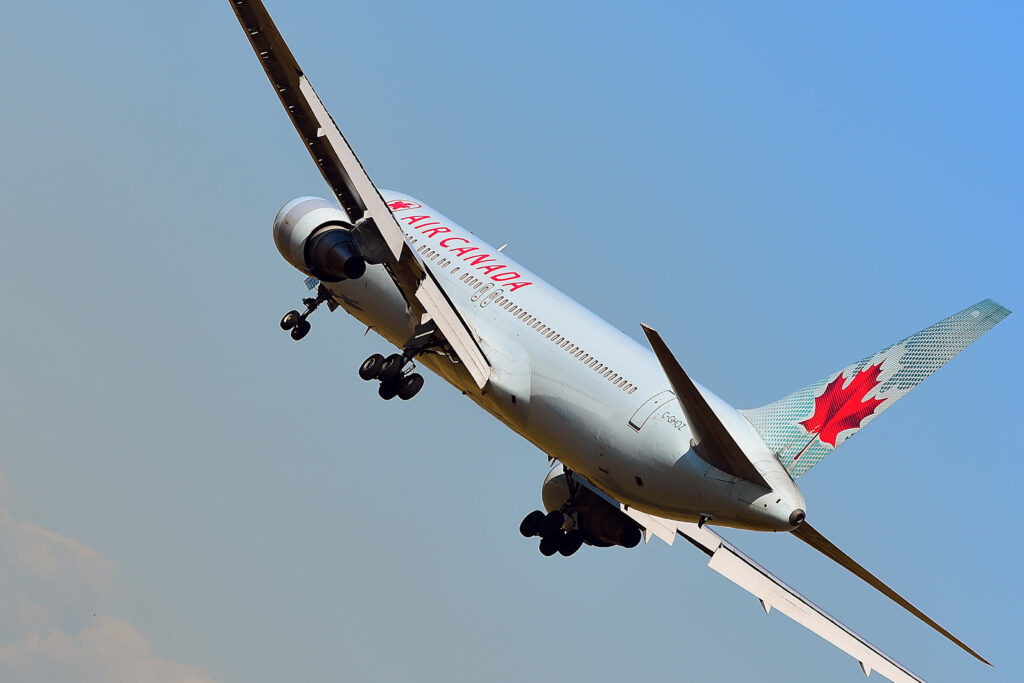Air Canada Cargo, the cargo arm of the Canadian flag carrier, has scheduled the first routes of its freshly converted Boeing 767-300ER freighters ‒ the first dedicated cargo aircraft in the fleet. The new routes are planned to be launched in autumn of 2021 when the first of its fully converted Boeing 767 passenger-to-freighter enters service.
The cargo operator was previously transporting freight in the bellies of Air Canada (ADH2)’s aircraft operating scheduled passenger service. When the pandemic hit, resulting in a global cargo capacity crunch, the airline began operating cargo-only flights using Air Canada (ADH2)’s mainline wide-body aircraft that would have been otherwise grounded, including reconfigured four Boeing 777-300ER and three Airbus A330 freighters.
Now, in line with its global cargo operations expansion plan, Air Canada (ADH2) is converting several of its old passenger Boeing 767s into freighter planes with expectations to receive the first converted aircraft in October 2021.
Once the first cargo jet joins the air carrier, it will be based at Toronto Pearson International Airport (YYZ) and fly five new routes linking Toronto and Miami (MIA), Lima (LIM), Quito (UIO), Mexico City (MEX) and Guadalajara (GDL). As more converted freighters enter service, Air Canada (ADH2) plans to further expand its cargo network by adding additional domestic and international destinations in early 2022. The enlarged cargo network will consist of additional freight operations to Halifax (YHZ), St. John’s (YYT), Madrid (MAD), and Frankfurt (FRA).
Re-focuses on cargo capacity expansion amid the global pandemic
The ongoing pandemic has fallen hard on Air Canada’s (ADH2) Boeing 767 fleet. In May 2020, the airline decided to retire the type, putting the planes among the 79 jets that were withdrawn from the fleet due to the crisis. Air Canada’s (ADH2) decision touched the remaining 5 767s in its mainline fleet, as well as all of the 767s at its subsidiary airline Air Canada Rouge.
Then, in November 2020, when Air Canada (ADH2) took on the implementation of its strategic plan to expand the cargo service network, the idea of plane conversion ignited. The airline decided to use converted freighters to grow its cargo business across the global supply chain in response to evolved opportunities in the market amid the COVID-19 pandemic. Therefore, the airline chose to convert certain of its already retired Boeing 767 passenger jets into dedicated cargo planes.
Air Canada (ADH2) estimated that additional cargo jets in its fleet should provide the company consistent capacity on its key cargo routes as well as enhance its capabilities to transport various freight, including automotive and aerospace parts, oil and gas equipment, pharmaceuticals, perishables, and e-commerce goods. The newly converted jets were expected to provide long-term stability and growth in air freight capacity year-round.
Simultaneously, in autumn 2020, the airline concluded a collective agreement amendment with its pilots for contractual changes to enable Air Canada (ADH2) to competitively operate dedicated cargo aircraft in the freight market.
In January 2021, an American lessor company Air Transport Services Group agreed to purchase two of Air Canada (ADH2)‘s Boeing 767-300ERs in order to convert them to a particular freighter configuration. Both parties agreed that once the conversion was done, the airline would lease both planes back with the expected re-delivery by the end of 2021.
According to Air Canada (ADH2), since the beginning of March 2020, the airline has completed more than 9,000 cargo operations via its wide-body passenger jet, including modified Boeing 777 and Airbus A330 jets, whose seats had been temporarily removed from the passenger cabin to ensure additional available cargo space.

